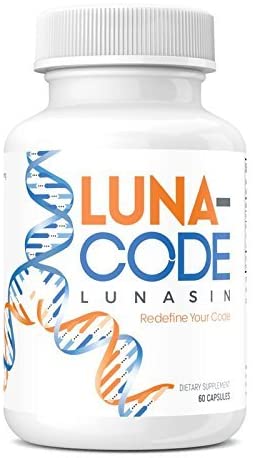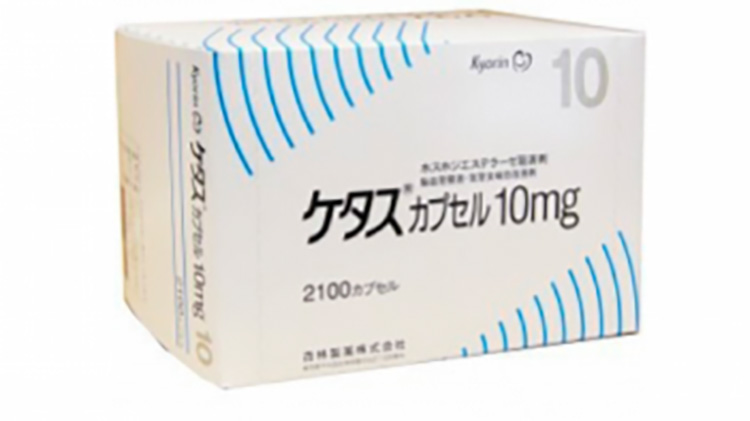Lunasin (lunasin) vs Ketas (ibudilast)
Lunasin (lunasin) vs Ketas (ibudilast)
Lunasin is a peptide originally isolated from soybeans that has been studied for its potential anti-inflammatory and anticancer properties, though it is not an approved medication and requires more research to establish its efficacy and safety for medical use. Ketas, also known as ibudilast, is an approved medication in some countries for treating asthma and post-stroke complications, and it has been investigated for its neuroprotective effects in multiple sclerosis and other neurological conditions. When deciding between Lunasin and Ketas (ibudilast), one should consider that Ketas is an established pharmaceutical with known indications and a documented safety profile, whereas Lunasin's use is still experimental and not officially sanctioned for any medical condition.
Difference between Lunasin and Ketas
| Metric | Lunasin (lunasin) | Ketas (ibudilast) |
|---|---|---|
| Generic name | Lunasin | Ibudilast |
| Indications | Not applicable as lunasin is a peptide and not a drug; studied for potential health benefits | Asthma, cerebrovascular disorders; under investigation for multiple sclerosis and other neurodegenerative disorders |
| Mechanism of action | Believed to have anti-inflammatory, anti-oxidative, and possibly anticarcinogenic properties | Phosphodiesterase inhibitor, suppresses pro-inflammatory cytokine production |
| Brand names | Not applicable as lunasin is not marketed as a drug | Ketas among others |
| Administrative route | Typically consumed orally as a dietary supplement | Oral |
| Side effects | Insufficient reliable data to determine | Headache, dizziness, nausea, vomiting, rash |
| Contraindications | Insufficient reliable data to determine | Hypersensitivity to ibudilast or any component of the formulation |
| Drug class | Not classified as a drug | Phosphodiesterase inhibitor |
| Manufacturer | Not applicable as lunasin is not manufactured as a drug | Various manufacturers |
Efficacy
Lunasin and Amyotrophic Lateral Sclerosis (ALS)
Lunasin is a peptide that has been studied for its potential therapeutic effects in various diseases, including Amyotrophic Lateral Sclerosis (ALS). ALS is a progressive neurodegenerative disease that affects nerve cells in the brain and the spinal cord. The efficacy of Lunasin in the treatment of ALS has been explored due to its anti-inflammatory and neuroprotective properties. Some preclinical studies have suggested that Lunasin may have beneficial effects on cellular models of ALS. However, clinical data on the efficacy of Lunasin for ALS patients is limited, and more research is needed to determine its potential role in the management of this condition.
Ketas (Ibudilast) and Amyotrophic Lateral Sclerosis (ALS)
Ketas, also known as Ibudilast, is a small molecule phosphodiesterase inhibitor that has been used in Japan for the treatment of asthma and post-stroke complications. It has gained interest in the ALS community due to its anti-inflammatory and neuroprotective effects. The drug has been subject to clinical trials to evaluate its efficacy in slowing the progression of ALS. The results from these trials have shown that Ibudilast has a modest effect on preserving motor function and extending survival in ALS patients, suggesting that it may be a potential treatment option for this debilitating disease.
Clinical Trials and Research on Lunasin and Ketas
Clinical trials are essential for assessing the efficacy and safety of treatments for ALS. Lunasin has been evaluated in a small pilot clinical trial, but the results were not sufficient to demonstrate a clear benefit for ALS patients. On the other hand, Ketas (Ibudilast) has been studied in a phase 2 clinical trial, which indicated a slower rate of disease progression in patients treated with the drug compared to those on placebo. These findings have prompted further investigation into Ibudilast's potential as a treatment for ALS.
Conclusion on the Efficacy of Lunasin and Ketas for ALS
In conclusion, while there is some evidence to suggest that both Lunasin and Ketas (Ibudilast) may have potential benefits for patients with ALS, the available data is not yet conclusive. Lunasin requires more robust clinical trials to verify its efficacy, while Ketas has shown some promise in clinical studies and continues to be evaluated. As with any potential treatment, the benefits must be weighed against the risks, and further research is necessary to fully understand the role these compounds could play in the management of ALS.
Regulatory Agency Approvals
Lunasin
-
Food and Drug Administration (FDA), USA

Ketas
-
Pharmaceuticals and Medical Devices Agency (PMDA), Japan

Access Lunasin or Ketas today
If Lunasin or Ketas are not approved or available in your country (e.g. due to supply issues), you can access them via Everyone.org.
How it works

Make an enquiry
Choose the medicine you want to buy, answer a couple of questions, and upload your prescription to speed things up. We’ll get back to you within 24 hours.


Make an enquiry
Choose the medicine you want to buy, answer a couple of questions, and upload your prescription to speed things up. We’ll get back to you within 24 hours.


Breeze through the paperwork
We'll guide you through the required documents for importing unapproved medicine, ensuring you have all the necessary information.


Get a personalized quote
We’ll prepare a quote for you, including medicine costs and any shipping, administrative, or import fees that may apply.


Receive your medicine
Accept the quote and we’ll handle the rest - sourcing and safely delivering your medicine.

Some text on this page has been automatically generated. Speak to your physician before you start a new treatment or medication.
Let's talk
If you have any questions, call us or send us a message through WhatsApp or email:
Contact us




